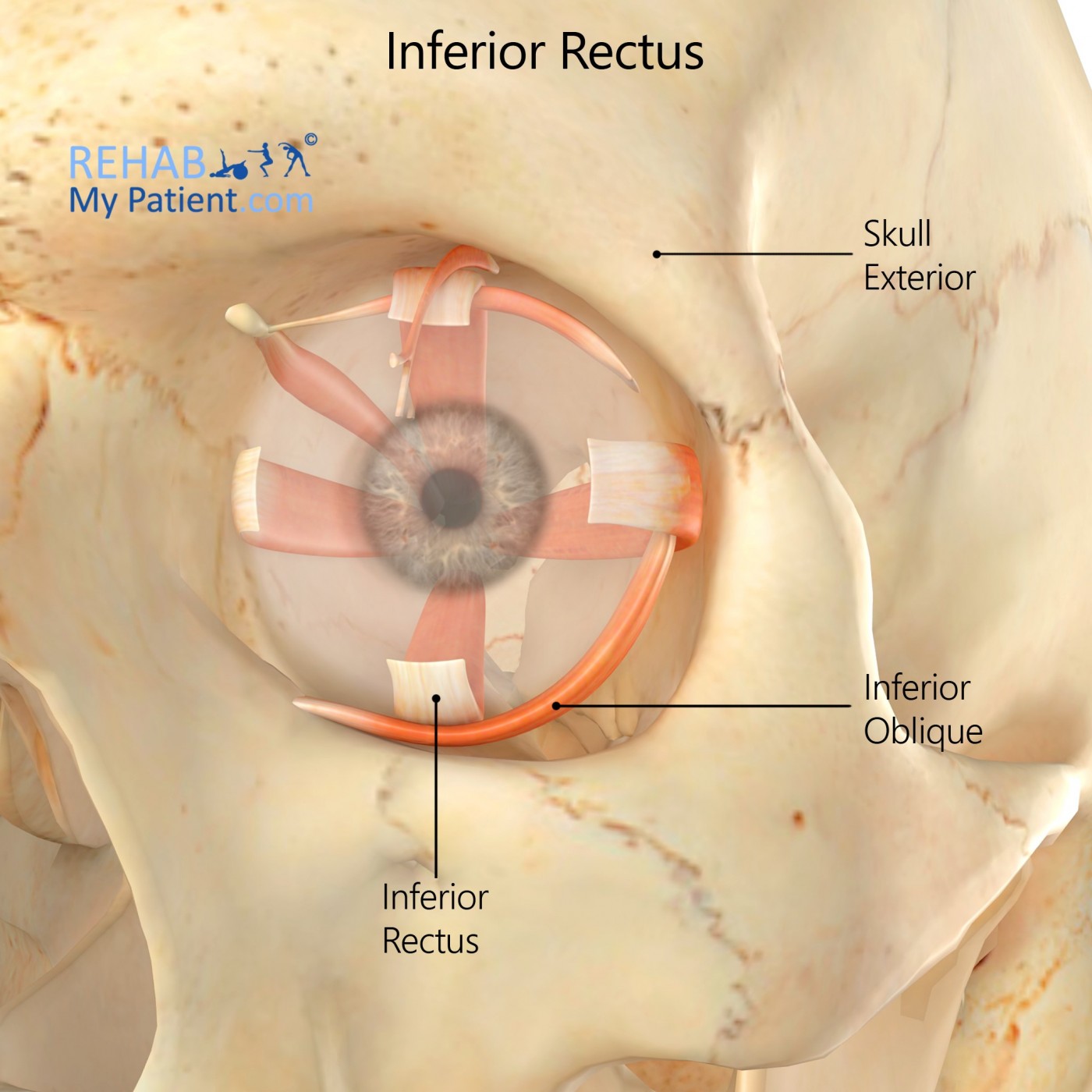Inferior Rectus
Posted on 24th Jul 2020 / Published in: Face

General information
Inferior rectus muscle is part of the extraocular muscles along with five other muscles. Four of these muscles, including the inferior rectus, control eye movement in the cardinal directions.
Literal meaning
The inferior straight muscle (of the eye).
Interesting information
Although the main function of this muscle is eyeball depression, it also acts to control eyeball movement and the direction of gaze in coordination with the other extraocular muscles.
Origin
Common tendinous ring (Annulus of Zinn).
Insertion
Anterior half of eyeball (posterior to corneoscleral junction).
Function
Depresses, adducts, externally rotates eyeball.
Nerve supply
Oculomotor nerve (CN III).
Blood supply
Ophthalmic artery, infraorbital artery.

Relevant research
The inferior rectus muscle can become inflamed in patients with thyroid eye disease causing fibrotic changes in the muscles leading to hypotropia and reduced eye elevation. For these reasons, Bell’s phenomenon may be decreased in these patients and only improve after inferior rectus recession. Bell’s phenomenon, a reflex observed when the eye moves upward and outward during attempted eyelid closure or during incomplete blinking and occurs behind forcibly closed eyelids in normal individuals.
Takahashi, Y., Sabundayo, M. S., Mito, H., Miyazaki, H., & Kakizaki, H. (2017). Bell's phenomenon in thyroid-associated inferior rectus myopathy. Graefe's archive for clinical and experimental ophthalmology = Albrecht von Graefes Archiv fur klinische und experimentelle Ophthalmologie, 255(12), 2467–2471.
Inferior rectus exercises
None
Sign UP
Sign up for your free trial now!
Get started with Rehab My Patient today and revolutionize your exercise prescription process for effective rehabilitation.
Start Your 14-Day Free Trial